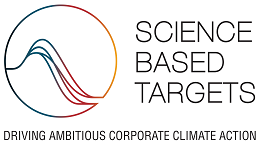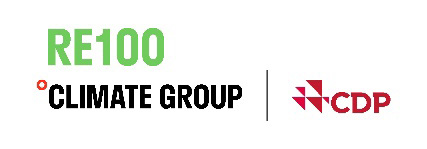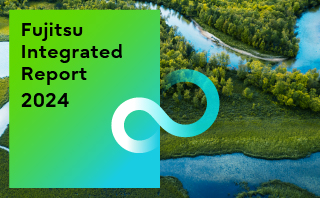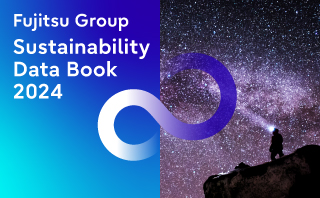-
Sustainability at Fujitsu Group
- Sustainability Management in the Fujitsu Group
- GRB(Global Responsible Business)Goals and Achievments for FY2022
- GRB(Global Responsible Business)Goals for FY2025
- Fujitsu's accessibility
- Stakeholder Engagement
- United Nations Global Compact
- SDG-related Activities in Fujitsu
- External Recognition and Awards
-
Global Responsible Business
- Environment
-
- Environmental Management
- The Fujitsu Group Environmental Vision on Climate Change
- Living in Harmony with Nature (Conservation of Biodiversity)
- Environmental Action Plan
- Environmental Data
- Environmental Communication
- Environmental Social Activities
- Disposal and Recycling of ICT products
- Environmental Considerations in ICT Products
- Governance
-
Data and Documents
- Fujitsu Group Sustainability Data Book 2024
- Social, Governance and Environmental data
- Independent Assurance Report

- GRI Standards / United Nations Global Compact (UNGC) principles Comparison Table
- SASB Standards Comparison Table
- Sustainability Information Disclosure Framework
- Link to regions responsible business reports
- Contact
- Sitemap
Collaboration on Initiatives to Address Climate Change
Approach
The Fujitsu Group supports the goal adopted in the Paris Agreement to “hold the global temperature increase to well below 2°C above pre-industrial levels and pursue efforts to limit it to 1.5°C above pre-industrial levels”. In 2017, we earned Science Based Target Initiative (SBTi) certification for our vision for the environment, the "Fujitsu Climate and Energy Vision," in which the Group establishes its goal to become carbon neutral by 2050. In 2021, the Group subsequently strengthened its target, obtaining SBTi certification for its 1.5°C ambition level. Then in 2023, the Group expanded the scope to encompass the entire value chain, committing to a net-zero target by 2040 and consequently earning "Net Zero" certification.
However, to meet the goal of the Paris Agreement, we recognize the importance of expanding the scope of our activities beyond the Group and the value chain by collaborating with external organizations such as industry associations and global initiatives, and through these, to reach out to countries and regions by engaging in lobbying and advocacy.
The following is an explanation of the scope of application and management structure of the climate change initiatives in which we are actively engaged.
Scope of Application
The climate policies and strategies adopted by the Fujitsu Group are directed at the Group’s consolidated subsidiaries, and apply to the subsidiaries’ business areas and jurisdictions.
Management Structure
In April 2020, the Fujitsu Group established a Sustainability Management Committee, chaired by the CEO. The Committee addresses key sustainability issues, developed into a framework comprising six broad themes under the name Global Responsible Business (GRB). One of the themes is Environment, where discussion ranges from the establishment of policies and targets to combat climate change and a review of progress thus far, to initiatives, responses to climate policy, and whether or not to participate in industry groups and associations. The Committee also reports the results to the Management Council and the Board of Directors.
In terms of initiatives in which we have decided to participate or join, we regularly check whether the climate action plans and policies of those initiatives are consistent with our own. If we find that the action plan of a group or association to which we belong is flawed, we will cooperate with the member companies to improve it. If we find the action plan to be grossly inadequate, we will consider taking action, including withdrawing from said group or association.
External Organizations of Which Fujitsu is a Member
Fujitsu participates as a member of the below-mentioned external organizations, directing its efforts towards climate change initiatives and advocating for climate policies.
World Business Council for Sustainable Development (WBCSD)
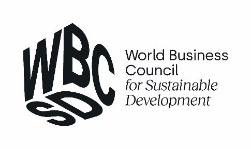
WBCSD is a global association of more than 200 companies working together to accelerate the transition to a business-led sustainable world through Vision 2050, an agenda developed by WBCSD to build "a world in which more than 9 billion people are able to live well, within planetary boundaries, by 2050”. Fujitsu has been a member of WBCSD since 2013; CEO Tokita currently serves on its Executive Committee.
Fujitsu contributed to the development of Vision 2050, which sets out a long-term vision that is central to WBCSD activities and was developed in line with the Sustainable Development Goals (SDGs) and the goals of the Paris Agreement. Through a range of projects, WBCSD is working toward the realization of Vision 2050 by developing the guidance needed in each field, applying the knowledge and technologies gained from R&D to solving societal problems in the real world, and engaging in policy advocacy. As part of this, Fujitsu has been actively involved in projects on Climate Action and Transport & Mobility.
Working with WBCSD’s Climate Action imperative, Fujitsu participated as a Partnership for Carbon Transparency (PACT) member in the PACT Implementation Program, the world's first social implementation program to enable business-to-business data linkage for product carbon footprint (PCF) information. Through this program, Fujitsu succeeded in visualizing CO2 emissions across its supply chain, and presented the results at New York Climate Week held in September 2023.
Convened under WBCSD’s Transport & Mobility pathway, Fujitsu took part in planning a project to support GHG emissions reduction in the automotive sector, conducting a PoC together with participating members, and publishing the results in a white paper.
Through these projects, Fujitsu will actively work with industry associations and related stakeholders, including WBCSD, to develop standards and guidance through PoCs. And while continuing to lobby on policy, Fujitsu will also focus on implementing Vision 2050 and contributing to meeting the SDGs and the goals of the Paris Agreement.
Related links
- WBCSD

- Vision 2050: Time to Transform

- [English press release] Fujitsu pioneering supply chain CO2 visualization with successful participation in WBCSD PACT Implementation program
JAPAN CLIMATE LEADERS’ PARTNERSHIP (JCLP)
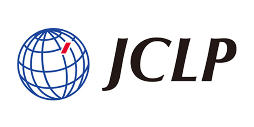
Established in 2009 with the firm belief that it is up to the industrial community to initiate positive action on climate change, JCLP is a coalition of Japanese companies that aims to build a carbon-neutral sustainable society. To overcome the climate crisis, JCLP is committed to an early transition to a carbon neutral society to ensure that the Paris Agreement’s 1.5°C threshold is met. JCLP requires member companies to endorse the Paris Agreement, transition to decarbonized business operations (seek to diversify away from regressive business models), engage in policymaking, declare net zero, actively participate in initiatives such as RE100, and encourage value chains to go carbon neutral. JCLP’s pillars of climate action consist of six advocacy activities including policy engagement, shaping appropriate public opinion, and collaborating with stakeholders. In 2023, JCLP announced its "Policy Proposal for Accelerating Decarbonization Through Green Transformation," personally delivering the proposal to the competent minister. It included recommendations to expand the adoption of practical energy-saving and energy-creating technologies designed to accelerate the 1.5°C target.
Fujitsu endorses the activities mandated by the JCLP and has participated in these activities as an executive member since JCLP was founded. Fujitsu is also actively involved in working groups to contribute to policy-making and to expand the use of renewable energy by the company itself and society as a whole.
Japan Climate Initiative (JCI)

JCI is a network established in July 2018 to boost information dissemination and exchange of views among companies, local government bodies, NGOs and other organizations taking steps to combat climate change. In order to implement the Paris Agreement, JCI is urging the Japanese government to forge ahead with its planned 46% reduction in the nation’s greenhouse gas emissions (NDC, or Nationally Determined Contribution) by FY2030 (compared to FY2013 levels), and to aim for a 50% reduction by FY2030. JCI is also urging the government to expand the introduction of renewable energy sources to 40-50% of the electricity mix by 2030.
Fujitsu endorses JCI’s advocacy messages and has been working together with JCI since its inception to build a decarbonized society. The messages are also endorsed by a wide range of organizations including leading Japanese companies, local government bodies, and NGOs. We are actively collaborating with the participating organizations to meet the goals of the Paris Agreement.
For information on the activities of other participating organizations, and initiatives pursued by the Fujitsu Group through these organizations, please refer to the links below.

